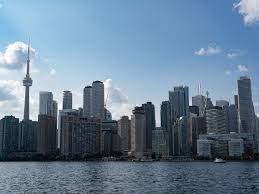
Table of Contents
Toronto, Canada’s largest city and economic hub, has consistently ranked among the most expensive real estate markets in the world. With soaring home prices and rents, many wonder why Toronto’s real estate is so expensive. Several factors contribute to the high cost of housing in this vibrant metropolis, ranging from population growth and limited supply to government policies and global economic trends.
Population Growth and Urbanization
Toronto is one of Canada’s fastest-growing cities, attracting thousands of new residents every year. It is a hub for immigration, with newcomers from around the world choosing Toronto for its economic opportunities, cultural diversity, and quality of life. This continuous influx of people creates a high demand for housing, both for ownership and rental purposes. As the population grows, the competition for available housing drives prices up.
Limited Land and Supply Constraints
Geographic and policy constraints also play a major role. Toronto is bounded by Lake Ontario to the south, limiting outward expansion. Moreover, much of the surrounding area is protected under the Greenbelt Act, which restricts development to preserve natural spaces. These restrictions create a scarcity of developable land, making it challenging to meet the growing demand for housing.
In addition, the process of building new housing is often slow and complicated. Lengthy approval processes, zoning regulations, and a shortage of skilled labor further contribute to delays in increasing the housing supply.
Rising Construction Costs
The cost of building homes has risen significantly in recent years due to inflation, increased material costs, and labor shortages. Developers face higher expenses, which are ultimately passed on to buyers and renters. This trend has been exacerbated by supply chain disruptions caused by global events, such as the COVID-19 pandemic, which increased the price of key construction materials like lumber and steel.
Low Interest Rates
Historically low interest rates have also played a significant role in driving up real estate prices. Low borrowing costs make mortgages more affordable, encouraging more people to enter the housing market. This increased demand often leads to bidding wars and higher prices, especially in desirable neighborhoods.
Speculation and Investment
Toronto’s real estate market has become a popular investment vehicle, both for domestic and international buyers. Many investors purchase properties as a way to grow wealth, betting on the market’s continued appreciation. This speculative activity can drive up prices, making it harder for first-time buyers to enter the market.
Government Policies and Taxes
While government policies aim to improve affordability, they can sometimes have unintended consequences. Measures like the Foreign Buyers Tax and the Vacant Home Tax are intended to curb speculative investment and increase housing availability, but their effectiveness remains debated. Additionally, policies aimed at increasing density and supply often face pushback from local communities, delaying meaningful changes.
Desirability and Amenities
Toronto’s status as a global city also contributes to its high housing costs. It offers world-class amenities, a strong job market, and a vibrant cultural scene. Proximity to top-rated schools, healthcare facilities, and public transit makes Toronto particularly attractive, further driving demand.
Conclusion
Toronto’s expensive real estate market is the result of a complex interplay of factors, including rapid population growth, limited housing supply, rising construction costs, low interest rates, and speculative investment. While government and industry stakeholders are working to address affordability, meaningful solutions will require coordinated efforts to increase supply, manage demand, and balance the needs of residents and investors. For now, Toronto remains a challenging but highly desirable place to call home.
